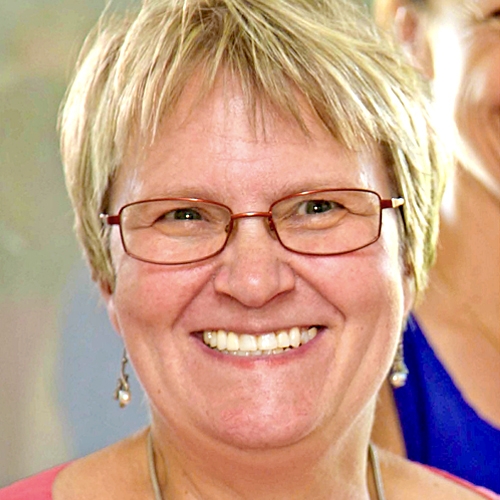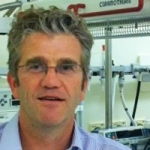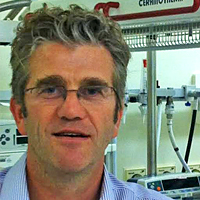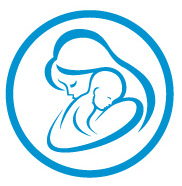 Breastfeeding Strategies for the Preterm Infant Online Course(s) & Continuing Education
Breastfeeding Strategies for the Preterm Infant Online Course(s) & Continuing Education
Access the latest clinical skills and research for Breastfeeding Strategies for the Preterm Infant for NEONATOLOGY professional training. These Breastfeeding Strategies for the Preterm Infant online courses provide practice-changing skills and valuable perspectives from leading global experts. This Breastfeeding Strategies for the Preterm Infant education has been accredited for a variety of CEUs / CERPs and can be accessed on-demand, at your own pace.

Back to Basics for Cleft Lip and Palate: An Overview of Strategies to Support Lactation in the Neonatal Period and Beyond

Alice Farrow is an IBCLC, writer, speaker, and infant feeding and health equity advocate. Parent of a child born with a cleft lip and palate, Alice has worked extensively, since 2006, with parents, parent organisations, cleft teams health providers and lactation specialists in order to increase awareness of the specific challenges faced by cleft affected infants and their families and to imprve access to adequate lactation support for this community.
Currently based in Rome, Italy, Alice advocates for, and teaches regularly on, the topic of breastfeeding/chestfeeding with an oral cleft via presentations, courses, articles, booklets and handouts and supports parents and professionals wordwide via their Cleft Lip and Palate Breastfeeding website and associated online support group, and in person and distance consultations.
A common misconception among care providers and families is that babies born with an oral cleft cannot breastfeed/chestfeed. This presentation corrects that misconception by exploring cleft types and their expected breastfeeding/chestfeeding outcomes and sharing tools that lactation specialists can use to more effectively support parents when their baby is born with a cleft lip/palate. In particular, during the neonatal period, the lactation specialist is uniquely positioned to support parents to make informed decisions about their feeding choices and create a going home care plan to help them achieve their breastfeeding/chestfeeding goals in the long term.

View Details / Enroll

View Details / Enroll

Best Practices in Prenatal and Perinatal Psychology and Somatic Health for Optimal Birth Outcomes

Kate White is and award-winning craniosacral and massage therapist, prenatal and early childhood educator. She is trained in somatic therapies, prenatal and perinatal health, lactation, brain development, infant mental health, and has specialized in mother-baby dyad care using somatic prevention and trauma healing approaches for nearly 20 years. She is a mother of two children, holds a BA and MA in Communication, is a Registered Craniosacral Therapist in the Biodynamic Craniosacral method and a Somatic Experiencing® Practitioner. Her work combines somatic therapy with brain development to help give families with babies and small children the best possible start. She is Founding Director of Education for the Association for Prenatal and Perinatal Psychology and Health from 2013 – 2018 where she managed a large online educational program for professionals. She currently co-directs this program, administering an online program for parents and parent professionals, runs a private practice and offers her own seminars through the Center for Prenatal and Perinatal Programs, ppncenter.com.
Topic: Best Practices in Prenatal and Perinatal Psychology and Somatic Health for Optimal Birth Outcomes - [View Abstract]
Topic: Integration of the Science of Safety and Resilience into Perinatal Care: A 5 Step Process - [View Abstract]
Topic: The Science of Safety and Trauma Specific Recognition to Improve Birth Outcomes: What Does It Mean for the Midwife? - [View Abstract]
Topic: “It Was Right but so Wrong:” Helping Families Make Sense of Difficult Births with Trauma Sensitive and Prenatal and Perinatal Healing Approaches - [View Abstract]
Have you ever wondered about the baby’s experience of pregnancy, birth and postpartum and whether it affects birth outcomes? We now know that the mother’s experience can influence the baby in many ways. In addition, prenatal development and birth depend upon a sequence that becomes a pattern in the body. Somatic or body therapies to support healing from birth trauma are becoming more prevalent. Come hear about prenatal and perinatal psychology and health, or the exploration of a baby’s experience of conception, pregnancy and birth and how it has lifelong implications. This talk will outline several best practices for clinicians in perinatal settings of all kinds based on this perspective with a focus on education and somatic tools to ensure high prevalence of application. Current research, education and training programs will be cited, and case studies provided as time allows.

Best Practices to Support Breastfeeding in Neonatal Intensive Care

Kathie, an Associate Professor of Pediatrics, University of CT School of Medicine, is a neonatologist, member of the Human Milk Research Center at CT Children’s Medical Center, Hartford, CT, and graduated from Cornell University and Cornell University School of Medicine, completing postgraduate training in Pediatrics, Pediatric Nephrology and Neonatology at Children’s National Medical Center, George Washington University, Washington DC USA. In the inaugural group of physicians designated “Fellow of the Academy of Breastfeeding Medicine” (FABM), she served twelve years on the ABM Board of Directors, chaired the Protocol committee, and chaired the United States Breastfeeding Committee 2013-14. Elected to the International Lactation Consultant Association Board July 2014-17, she is a member of the American Academy of Pediatrics Section on Breastfeeding, serves as the AAP Connecticut Chapter Breastfeeding Coordinator since 2000, and Chairs the Baby-Friendly USA NICU Initiative. Initially founding Medical Director of the New England Mother's Milk Bank she is currently co-Medical Director of the Mothers' Milk Bank of the Western Great Lakes and has authored many chapters, monographs, peer-reviewed manuscripts, and ABM protocols. Her research centers on breastfeeding and the use of human milk in the NICU, cup feeding, donor milk/donor milk banking, the Baby-Friendly NICU, global maternal-child issues and the education of medical professionals. Lecturing extensively in the United States and abroad, she resides in Glastonbury, CT, her greatest accomplishment her 4 amazing young adults, 19 to 29 years of age.
Topic: The Science and Significance of Human Milk and Breastfeeding in Neonatal Intensive Care - [View Abstract]
There are many challenges faced by mothers, families and staff with the hospitalization of a sick or premature infant that affect lactation and breastfeeding. These include mother-infant separation, initiation and maintenance of lactation by milk expression, compromised milk production, barriers to infant-mother-parent bonding, the need for family-centered care, and the many issues related to continuity of care both during the hospitalization and between facilities and caregivers. We will explore current evidence concerning the support of mothers’ and families’ choice to transition from milk expression to breastfeeding of their infants in intensive care. While our knowledge of the importance of human milk has grown immensely with respect to nutrition, acute and chronic disease risk reduction and prevention, neurodevelopment, physiology, and the intestinal microbiome among others, there remains a gap in the translation of this knowledge into the practice of transition of human milk feeding to breastfeeding in many countries, regions and individual intensive care units/wards. It can be done—we will explore the evidence for how!


Dr. Joana Torres received her medical degree from the University of Coimbra, Portugal, and completed her fellowship in Gastroenterology at the Hospital Center of Coimbra, Portugal. She spent 3 years at Icahn School of Medicine at Mount Sinai, NY, USA working on research projects in the field of IBD. She is currently working in Hospital Beatriz Ângelo, Loures, Portugal as a Gastroenterology Assistant and she is Adjunct Assistant Professor at Mount Sinai, NY. She is the President of the Scientific Committee of the Portuguese IBD Group and an active member of the European Crohn and Colitis Guideline committee (GuiCom). Her research focuses on populations at risk for developing inflammatory bowel disease with the goal of better understanding events taking place before the disease is diagnosed.
Inflammatory Bowel Disease is a chronic immune-mediated disease with increasing epidemiology. IBD results from a complex relationship between genetic susceptibility, environmental factors and intestinal microbiota, resulting in a self-perpetuating abnormal mucosal immune response. Increasing epidemiological evidence suggests that early life events and childhood exposures may be important for determining the risk of IBD. One of the most important early life exposures is diet: breastfeeding (BF) or formula feeding may impact microbiome development, which in turn may modulate immune system maturation. In this presentation I will review the benefits of BF, the evidence suggesting the role of BF in IBD, the impact of BF on the developing microbiome, and debate the issues of breastfeeding in patients with IBD.

View Details / Enroll

Breastfeeding Medically Complex Infants in the Neonatal ICU

Amber Valentine is a Speech-Language Pathologist who graduated from the University of Kentucky with her MS in Communication Disorders. She is a Board Certified Specialist in Swallowing and Swallowing Disorders and an International Board Certified Lactation Consultant, as well as a Certified Neonatal Therapist (CNT). She worked for Baptist Health Systems, Inc for 8 years before moving to Florida where she worked for Wolfsons Children’s Hospital and Mayo Florida. She is now back in Kentucky working for Baptist Health Lexington. She has experience in adults and pediatrics with feeding and swallowing difficulties including: bedside swallow evaluations, Modified Barium Swallow studies, FEES, and pediatric feeding evaluations including NICU. She has experience with head and neck cancer patient including evaluation and treatment of swallowing difficulties, PMV use, and voice after total laryngectomy including TEP. She has provided guest lectures for the University of Kentucky, Eastern Kentucky University, and the University of Louisville on feeding and swallowing topics. She has presented at the hospital, local, state, national, and international levels on pediatric feeding/swallowing and breastfeeding.
Topic: Breastfeeding Medically Complex Infants in the Neonatal ICU - [View Abstract]
Topic: Building a Successful Breastfeeding Program in the NICU: Challenges and Practical Solutions - [View Abstract]
Feeding is the most complex task of infancy, even in term babies with no complications. There are many diagnoses, conditions, syndromes, and co-morbidities that can impact feeding in neonates and infants. This talk will briefly highlight many of those, but we will focus on three specific populations of interest –Cleft lip and palate, Infants of Diabetic Mothers, and Down Syndrome. We will discuss the specific implications these conditions can have on feeding, why these infants may have difficulty, and the classic symptoms one could expect to see. The differences between delayed and disordered feeding will also be addressed. Strategies and adaptions for both breast and bottle feeding will be discussed. Positioning, nipple flow rate, and external strategies will be explained. Case studies will be shared at the end of the presentation.

View Details / Enroll

View Details / Enroll

Breastfeeding of Preterm Infants – Associated Factors in Infants, Mothers, and Clinical Practice

Clinical nurse researcher in the area of breastfeeding preterm infants and skin-to-skin contact at dept. of Neonatology, Copenhagen University Hospital Rigshospitalet and leader of Knowledge Centre for Breastfeeding Infants with special needs. Member of the Nordic and Quebec Working Group expanding the BFHI for neonatal wards (Neo-BFHI).
Breastfeeding of preterm infants is associated with factors in infants, mothers and clinical practice.
Extremely preterm infants establish exclusive breastfeeding at a higher PMA and have twice the risk of not being exclusively breastfed at discharge. Low education, less breastfeeding experience, and smoking are maternal factors negatively associated with exclusive breastfeeding.
Admitting mothers to the NICU together with the infant immediately after delivery is associated with earlier establishment of exclusive breastfeeding. The later the initiation of breast milk expression, the later the establishment of exclusive breastfeeding, and the higher risk for failure of exclusive breastfeeding at discharge and inadequate breastfeeding duration. The use of a nipple shield is associated with failure of exclusive breastfeeding at discharge and inadequate duration of exclusive breastfeeding. Minimizing the use of a pacifier during breastfeeding establishment and test weighing the infant are positively associated with exclusive breastfeeding at discharge.

View Details / Enroll

Building a Successful Breastfeeding Program in the NICU: Challenges and Practical Solutions

Amber Valentine is a Speech-Language Pathologist who graduated from the University of Kentucky with her MS in Communication Disorders. She is a Board Certified Specialist in Swallowing and Swallowing Disorders and an International Board Certified Lactation Consultant, as well as a Certified Neonatal Therapist (CNT). She worked for Baptist Health Systems, Inc for 8 years before moving to Florida where she worked for Wolfsons Children’s Hospital and Mayo Florida. She is now back in Kentucky working for Baptist Health Lexington. She has experience in adults and pediatrics with feeding and swallowing difficulties including: bedside swallow evaluations, Modified Barium Swallow studies, FEES, and pediatric feeding evaluations including NICU. She has experience with head and neck cancer patient including evaluation and treatment of swallowing difficulties, PMV use, and voice after total laryngectomy including TEP. She has provided guest lectures for the University of Kentucky, Eastern Kentucky University, and the University of Louisville on feeding and swallowing topics. She has presented at the hospital, local, state, national, and international levels on pediatric feeding/swallowing and breastfeeding.
Topic: Breastfeeding Medically Complex Infants in the Neonatal ICU - [View Abstract]
Topic: Building a Successful Breastfeeding Program in the NICU: Challenges and Practical Solutions - [View Abstract]

View Details / Enroll

Closeness and Separation and Its Importance for Parenting and Feeding in NICUs

Renée Flacking is Associate Professor and the leader for Reproductive, Infant and Child Health (RICH) at the School of Education, Health and Social Studies, Dalarna University, Sweden. Renée has a background as a Paediatric Nurse, having worked in a Neonatal Care Unit for more than 10 years. In 2007, she received her PhD in Medical Science, Uppsala University: Breastfeeding and Becoming a Mother – Influences and Experiences of Mothers of Preterm Infants. In 2009-2010 she undertook her PostDoc, conducting an ethnographic study in neonatal units in Sweden and England focusing on infant feeding and relationality. Renée has published more than 40 articles on neonatal care and is the Editor, together with Professor Fiona Dykes, for the book Ethnographic Research in Maternal and Child Health, Routledge. Renée’s main research interest is in the area of parenting and feeding in families with preterm infants focusing on emotional, relational and socio-cultural influences.
This presentation highlights the impact of separation and closeness on the parent and infant but also the impact of the design in neonatal units on breastfeeding/feeding and relationships. Most neonatal units across the world are designed as Open-bay units with little privacy and few means for mothers to stay in close proximity with their infants. Such units are challenging for parents and even more so in terms of breastfeeding support. With single room units, new challenges appear and hence new strategies need to be sought. Through consideration of the literature and by examples from different studies I will try to illuminate the impact of neonatal units’ design on feeding and parenting.

View Details / Enroll

View Details / Enroll

Feeding Preterm Babies after Hospital Discharge: Breast-milk, Fortifier, Supplements and Complementary Foods

Dr Embleton has worked in neonatal medicine for the past 25 years, completing clinical training and a research doctorate in neonatal nutrition in the UK, and a neonatal fellowship in Vancouver, Canada. He has worked as a Consultant Neonatal Pediatrician in Newcastle, UK since 2002, one of the largest UK neonatal units, caring for sick preterm and term born neonates. He leads a broad portfolio of research focused on nutrition and gut health in preterm infants. Areas of work include determining patterns of early gut microbial colonization, and how these may predict the development of necrotizing enterocolitis (NEC) and sepsis. He is a project team member of large neonatal feeding trials recruiting >5000 infants in the UK, as well as coordinating mechanistic studies using microbiomic and metabolomic analyses. He chairs the multi-disciplinary UK Neonatal Nutrition Network (N3) and is a member of the Committee of Nutrition for ESPGHAN.
Topic: Probiotics in Preterm Infants - [View Abstract]
Survival in preterm infants has increased over the last few years, and this has been accompanied by an increasing focus on the importance of nutrition and the effects of preterm birth on later outcomes. Providing nutrition to sick preterm infants in the NICU is complex, and almost all preterm infants are discharged with growth outcomes (weight and length) considerably below their birth centiles. This is important because data show an association between poorer growth and nutritional status in the NICU, and worse longterm neurodevelopmental outcomes. Whilst greater efforts are required to improve nutritional status prior to discharge, the post-discharge setting represents a time period when brain growth is also rapid, and where the potential exists to improve outcome through nutritional interventions. However, the potential benefits of improved brain outcomes need to be considered alongside the possibility of metablic harm induced by excessively rapid growth which may increase risks of obesity and later chronic disease. This talk will consider the continued importance of breast milk after discharge, the potential role of fortifiers and supplements in meeting nutrient requirements, and issues around the timing of introduction of complementary foods.

View Details / Enroll

View Details / Enroll

Helping Premature Babies Learn to Breastfeed: We Can Do It!

Robin P. Glass, MS, OTR, IBCLC practices occupational therapy at Seattle Children's Hospital in Seattle, WA and is an Assistant Clinical Professor in the Department of Rehabilitation, at the University of Washington. Her clinical specialty is the treatment of infants, with a strong focus on feeding and swallowing issues. She provides treatment for hospitalized infants including the NICU with a wide range of medical and developmental diagnoses. She is NDT trained and is a 20 year Board Certified Lactation Consultant. Robin has extensive national and international experience speaking about infant feeding.
Robin has received numerous awards including the National Association of Neonatal Therapists (NANT) 2015 Pioneer Award and the 2018 Nancy Danoff Spirit of Service award from the Breastfeeding Coalition of WA and Nutrition First. Robin has co-authored numerous journal articles as well as the book Feeding and Swallowing Disorders in Infancy: Assessment and Management.
Topic: Optimizing the Feeding Abilities of Premature Infants to Support Breastfeeding - [View Abstract]
Learning to breastfeed is the optimal and ideal method of feeding for any baby. For the baby born prematurely, however, there are factors related to the infant, to the environment and to the mother that can make this process more challenging. Many mother-baby dyads often leave the NICU not fully breastfeeding and continue to struggle once at home. This presentation will describe systematic, evidence based approaches to developing breastfeeding in the premature infant. It will review developmental and co-morbid factors affecting the infant’s feeding acquisition. A model pathway to develop breastfeeding will be outlined and this can serve as a template for varying NICU’s.

View Details / Enroll













